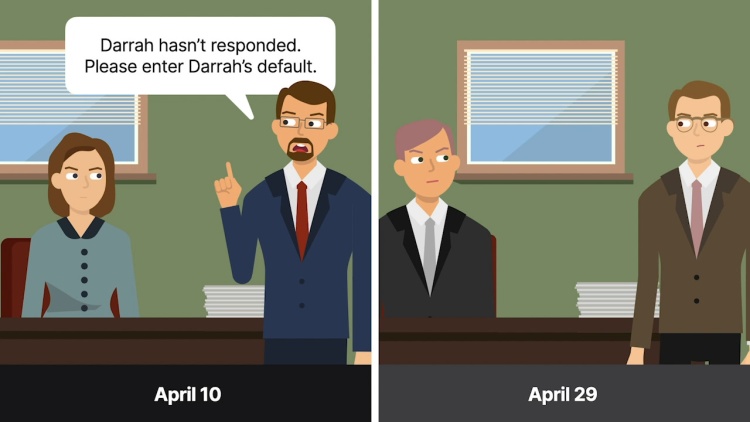Shepard Claims Service, Inc. v. William Darrah & Associates
United States Court of Appeals for the Sixth Circuit
796 F.2d 190 (1986)

- Written by Sean Carroll, JD
Facts
Shepard Claims Service, Inc. (Shepard) (plaintiff) field suit against William Darrah & Associates (Darrah) (defendant). Darrah was served on February 7, 1985. On February 22, 1985, Darrah’s attorney’s secretary got an extension of time for filing an answer because the attorney was on vacation. The secretary sent a confirmation letter on behalf of the attorney (with the attorney’s permission) confirming that the attorney had been granted 45 days from February 22, 1985 to answer the Shepard complaint. Darrah’s attorney had actually meant to receive an extension of 45 days counting from the end of the normal 30-day period allowed for an answer (March 9). The attorney did not review the secretary’s letter until much later. When the defendant had not filed an answer on April 10—45 days after February 22—because the attorney thought he had more time, Shepard requested and the court clerk entered Darrah’s default. Darrah subsequently filed an answer complete with affirmative defenses and counterclaims. The district court denied Darrah’s motion to set aside entry of default and certified the case for an interlocutory appeal to determine whether the entry of default should be set aside.
Rule of Law
Issue
Holding and Reasoning (Lively, C.J.)
What to do next…
Here's why 904,000 law students have relied on our case briefs:
- Written by law professors and practitioners, not other law students. 47,100 briefs, keyed to 995 casebooks. Top-notch customer support.
- The right amount of information, includes the facts, issues, rule of law, holding and reasoning, and any concurrences and dissents.
- Access in your classes, works on your mobile and tablet. Massive library of related video lessons and high quality multiple-choice questions.
- Easy to use, uniform format for every case brief. Written in plain English, not in legalese. Our briefs summarize and simplify; they don’t just repeat the court’s language.





